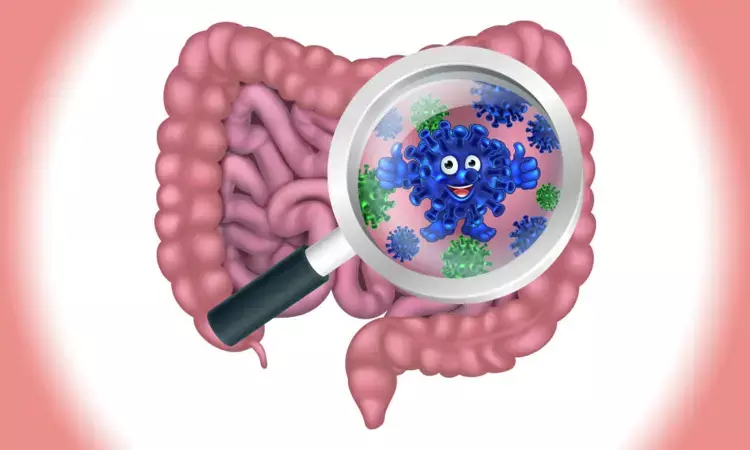- Home
- Medical news & Guidelines
- Anesthesiology
- Cardiology and CTVS
- Critical Care
- Dentistry
- Dermatology
- Diabetes and Endocrinology
- ENT
- Gastroenterology
- Medicine
- Nephrology
- Neurology
- Obstretics-Gynaecology
- Oncology
- Ophthalmology
- Orthopaedics
- Pediatrics-Neonatology
- Psychiatry
- Pulmonology
- Radiology
- Surgery
- Urology
- Laboratory Medicine
- Diet
- Nursing
- Paramedical
- Physiotherapy
- Health news
- Fact Check
- Bone Health Fact Check
- Brain Health Fact Check
- Cancer Related Fact Check
- Child Care Fact Check
- Dental and oral health fact check
- Diabetes and metabolic health fact check
- Diet and Nutrition Fact Check
- Eye and ENT Care Fact Check
- Fitness fact check
- Gut health fact check
- Heart health fact check
- Kidney health fact check
- Medical education fact check
- Men's health fact check
- Respiratory fact check
- Skin and hair care fact check
- Vaccine and Immunization fact check
- Women's health fact check
- AYUSH
- State News
- Andaman and Nicobar Islands
- Andhra Pradesh
- Arunachal Pradesh
- Assam
- Bihar
- Chandigarh
- Chattisgarh
- Dadra and Nagar Haveli
- Daman and Diu
- Delhi
- Goa
- Gujarat
- Haryana
- Himachal Pradesh
- Jammu & Kashmir
- Jharkhand
- Karnataka
- Kerala
- Ladakh
- Lakshadweep
- Madhya Pradesh
- Maharashtra
- Manipur
- Meghalaya
- Mizoram
- Nagaland
- Odisha
- Puducherry
- Punjab
- Rajasthan
- Sikkim
- Tamil Nadu
- Telangana
- Tripura
- Uttar Pradesh
- Uttrakhand
- West Bengal
- Medical Education
- Industry
Gut microbiome can predict non-response to oral methotrexate therapy in RA patients

Spain: Gut microbiome can predict non-response to oral methotrexate (MTX) therapy in patients with new-onset rheumatoid arthritis (NORA), finds a recent study in the journal Arthritis & Rheumatology.
The findings support the value of the gut microbiome as a potential target in RA therapeutics and as a possible prognostic tool.
Oral methotrexate (MTX) remains the anchor drug for RA, still, up to 50% of patients do not achieve a clinically adequate outcome. Also, there is a lack of prognostic tools for treatment response before drug initiation. In the study, Carles Ubeda, CIBER en Epidemiología y Salud Pública, Madrid, Spain, and colleagues aimed to study whether inter‐individual differences in the human gut microbiome can aid in the prediction of MTX efficacy in new‐onset RA.
For the purpose, the researchers performed 16S rRNA gene and shotgun metagenomic sequencing on the baseline gut microbiomes of drug‐naïve, NORA patients (n=26). Results were validated in an additional independent cohort (n=21).
In order to gain insight into potential microbial mechanisms, ex vivo experiments plus metabolomics analysis evaluated the association between microbiome‐driven MTX depletion and clinical response.
Key findings of the study include:
- The analysis revealed significant associations between the abundance of gut bacterial taxa and their genes with future clinical response, including orthologs related to purine and methotrexate metabolism.
- Machine learning techniques were applied to the metagenomic data, resulting in a microbiome‐based model that predicts lack of response to MTX in an independent group of patients.
- MTX levels remaining afterex vivo incubation with distal gut samples from pre‐treatment RA patients significantly correlated with the magnitude of future clinical response, suggesting a possible direct effect of the gut microbiome on MTX metabolism and treatment outcomes.
"Together, these results provide the first step towards predicting lack of response to oral MTX in NORA patients and support the value of the gut microbiome as a possible prognostic tool and as a potential target in RA therapeutics," concluded the authors.
The study titled, "The Pre‐treatment Gut Microbiome is Associated with Lack of Response to Methotrexate in New Onset Rheumatoid Arthritis," is published in the journal Arthritis & Rheumatology.
DOI: https://onlinelibrary.wiley.com/doi/abs/10.1002/art.41622
Dr Kamal Kant Kohli-MBBS, DTCD- a chest specialist with more than 30 years of practice and a flair for writing clinical articles, Dr Kamal Kant Kohli joined Medical Dialogues as a Chief Editor of Medical News. Besides writing articles, as an editor, he proofreads and verifies all the medical content published on Medical Dialogues including those coming from journals, studies,medical conferences,guidelines etc. Email: drkohli@medicaldialogues.in. Contact no. 011-43720751


